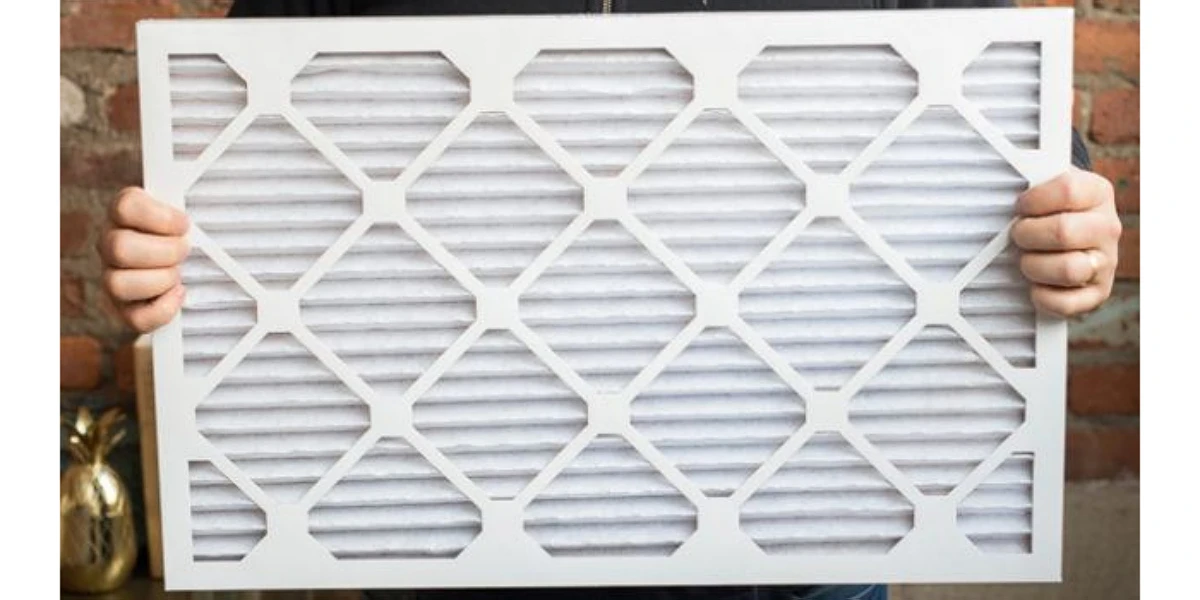With most people looking for better ways to protect themselves against potential airborne transmission of COVID-19, many products on the market are being promoted as effective devices to implement in their residences and businesses. One major step towards reducing the risk of COVID-19 noted by many health safety organizations would be the upgrade of the building’s air filter to one that is rated at a MERV 13 level or higher.

Chart of MERV ratings and the filter type and particles removed. HEPA filters are at the highest MERV level and do the best with protecting against air pollutants.
What is a MERV 13 filter?
MERV stands “minimum efficiency reporting value” and a filter receives a MERV rating as determined by the American Society of Heating, Refrigeration, and Air-Conditioning Engineers (ASHRAE).
With the recommendation of a MERV 13 or higher, does a MERV 13 filter satisfy your needs? A MERV 13 filter is a step in the right direction and captures more particles than a typical MERV 8 filter. However, it is not as good at capturing small virus sized particles like a HEPA can. A MERV 13 will trap less than 75% of air particles that are 0.3-1.0 micron in size (the coronavirus is 0.1 microns). It’s also difficult for many existing HVAC (Heating, Ventilation, and Air Conditioning) systems to adopt a MERV 13 due to the increased load on the fan from the finer filter media, which can actually cause more harm than good as well as reducing airflow if your system isn’t designed to handle that type of filter. On average, many facilities are limited to a MERV 8 or MERV 9 filter type.
Here is where the HEPA (high efficiency particulate air) filter comes in. A HEPA filter is essentially the ultimate solution in the air filter world and far exceeds what a MERV 13 is able to do. All HEPA filters have a rating of a MERV 17 or higher. A HEPA filter with a MERV 17 rating will trap 99.97% of air particles that are 0.3-1.0 micron in size and an even better % of particles below 0.3 microns and above (HEPA filters are rated at their worst performance). A HEPA filter’s proven ability to capture extremely small particles like viruses and bacteria is why they are used in hospital operating rooms.
Considering the threat that the spread of COVID-19 and other germs pose, an upgrade of a building’s air filter to a HEPA is a far more effective step than just to a MERV 13 considering the small size of a virus (0.06-0.12 microns); the more efficient the filter is, the better. The problem is that a HEPA is too fine of a filter media to implement into existing HVAC systems and the only way to add one into a facility is through a standalone or portable HEPA air filtration system with its own dedicated fan designed for the increased resistance of this filter type.
At Fete Filter, our commercial-grade air filtration systems come standard with a medical-grade HEPA filter. This allows any facility to easily upgrade to medically clean air without having to do a costly redesign of the current HVAC system by providing a HEPA in our stand-alone unit or by connecting one to your existing ductwork. Our medical-grade HEPA filter is rated at 99.99% effective or better at its worst rating of 0.3 microns but is even better at capturing particles that are smaller or larger than that size (click here to see how a HEPA works) providing a high level of safety for those within your building. In addition, we offer the option to bolster the powerful HEPA filter with the proven technology of ozone-free bipolar ionization and/or ultraviolet-C germicidal (UVC) irradiation. Check out our blogs on bipolar ionization and UVC to learn more.
In conclusion, the investment of a HEPA filtration system, when sized appropriately for the space, will go a long way towards providing clean air and peace of mind for all those within the building.







